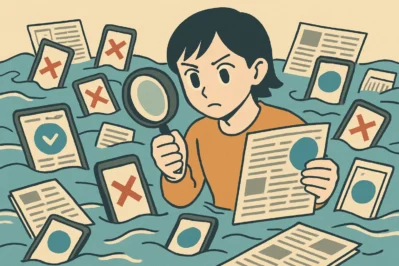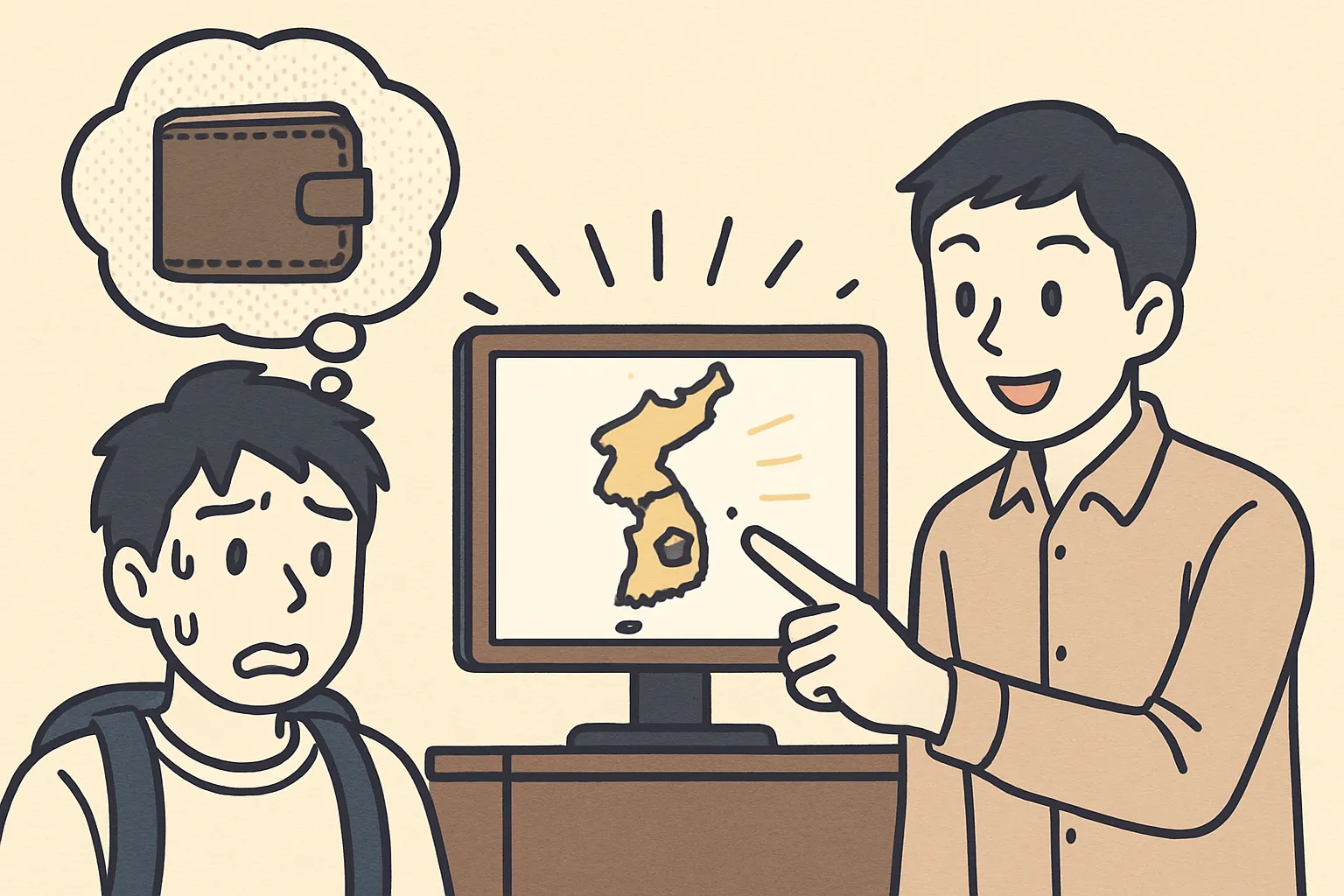Fake News Alert! How to Read Korean News Like a Pro
Hello! This is [Maeil Hangeul], here to upgrade your Korean skills!
In today’s world, we’re surrounded by information. But how can we know what’s true and what’s not, especially when reading in Korean? Today, we’re going to tackle a super important skill: Media Literacy (미디어 리터러시). This will help you understand Korean news, online posts, and discussions on a much deeper level.
Lately in Korea, there’s a huge conversation about ‘가짜 뉴스’ (fake news) and the ‘정보의 홍수’ (flood of information). Being able to think critically is not just a skill, it’s a superpower! Let’s get you equipped!
Core Expressions You Need to Know
Here are some essential phrases to help you become a critical reader of Korean media.
1. 가짜 뉴스 (Gajja Nyuseu)
- Pronunciation [Romanized]: [Ga-jja Nyu-seu]
- English Meaning: Fake News
- Detailed Explanation: This is a straightforward and widely used term. ‘가짜’ (gajja) means “fake” or “counterfeit,” and ‘뉴스’ (nyuseu) is the Korean way of saying “news.” You will hear this term everywhere, from TV news reports to casual conversations with friends about something they saw on social media.
2. 비판적으로 읽다 (Bipanjeog-euro ikda)
- Pronunciation [Romanized]: [Bi-pan-jeog-eu-ro Ik-da]
- English Meaning: To read critically
- Detailed Explanation: This is the core action of media literacy! ‘비판적으로’ (bipanjeog-euro) is an adverb meaning “critically,” and ‘읽다’ (ikda) means “to read.” This doesn’t mean being negative or criticizing everything. Instead, it means reading with an analytical mindset—questioning, analyzing, and evaluating the information. It’s a key phrase for showing your advanced thinking skills.
3. 출처를 확인하다 (Chulcheo-reul hwagin-hada)
- Pronunciation [Romanized]: [Chul-cheo-reul Hwa-gin-ha-da]
- English Meaning: To check the source
- Detailed Explanation: This is a practical and crucial step. ‘출처’ (chulcheo) means “source” or “origin,” and ‘확인하다’ (hwagin-hada) means “to check” or “to confirm.” Before you believe or share a piece of information, you should always check where it came from. This phrase is perfect for demonstrating your responsible approach to information.
4. 사실 확인 (Sasil Hwagin)
- Pronunciation [Romanized]: [Sa-sil Hwa-gin]
- English Meaning: Fact-checking
- Detailed Explanation: This is a noun phrase you’ll see a lot in journalistic contexts. ‘사실’ (sasil) means “fact,” and ‘확인’ (hwagin) means “confirmation.” Together, they mean “fact-checking.” Many major Korean news organizations have dedicated “fact-check” corners or teams.
Example Dialogue
Let’s see how these expressions are used in a real conversation. Two friends, A and B, are talking about a viral online post.
A: 너 어제 인터넷에서 난리 난 기사 봤어? 인기 아이돌 ‘루나’가 다음 달에 갑자기 은퇴한대!
(Did you see that article that went viral yesterday? It says the popular idol ‘Luna’ is suddenly retiring next month!)
B: 어, 나도 봤는데 그거 가짜 뉴스일 가능성이 높아. 소속사 공식 발표도 없었잖아.
(Oh, I saw that too, but there’s a high chance it’s fake news. There was no official announcement from her agency.)
A: 정말? 하마터면 믿을 뻔했네.
(Really? I almost believed it.)
B: 요즘엔 기사를 항상 비판적으로 읽다 습관을 들여야 해. 특히 자극적인 제목은 더더욱.
(These days, you have to get into the habit of always reading articles critically. Especially the ones with shocking headlines.)
A: 맞아. 내가 출처를 확인하다 걸 깜빡했어.
(You’re right. I forgot to check the source.)
B: 응. 중요한 정보는 꼭 사실 확인을 거쳐야 오해가 없어.
(Yep. Important information needs to go through fact-checking to avoid misunderstandings.)
Culture Tip & Trend Deep Dive
In South Korea, with its world-class internet speeds, information and misinformation spread like wildfire, especially through messaging apps like KakaoTalk. It’s common for people to share links in group chats without verifying them first.
This is where you can shine! If you see a questionable link in a group chat, you can now politely ask: “이 뉴스 출처가 어디예요?” (Where is the source of this news?). This shows you are a thoughtful and critical consumer of information.
Also, watch for the word 팩트체크 (Paek-teu-che-keu), the English loanword for “fact-check,” on Korean news programs. When you see this segment, you know the journalists are about to investigate a controversial claim. It’s a fantastic way to practice your listening and learn about current issues in Korea!
Let’s Review and Practice!
Great job today! We’ve learned some powerful expressions to help you navigate the Korean media landscape, from identifying 가짜 뉴스 to the importance of 사실 확인.
Now, it’s your turn to practice!
- Fill in the blank:
친구가 이상한 소식을 공유했을 때, 믿기 전에 반드시 ___________ 해야 해요.
(When a friend shares strange news, you must ___________ before believing it.) -
Make a sentence:
Using the phrase 비판적으로 읽다, write a short sentence about why media literacy is important.
Leave your answers in the comments below! We’d love to see you use what you’ve learned today. Happy learning






